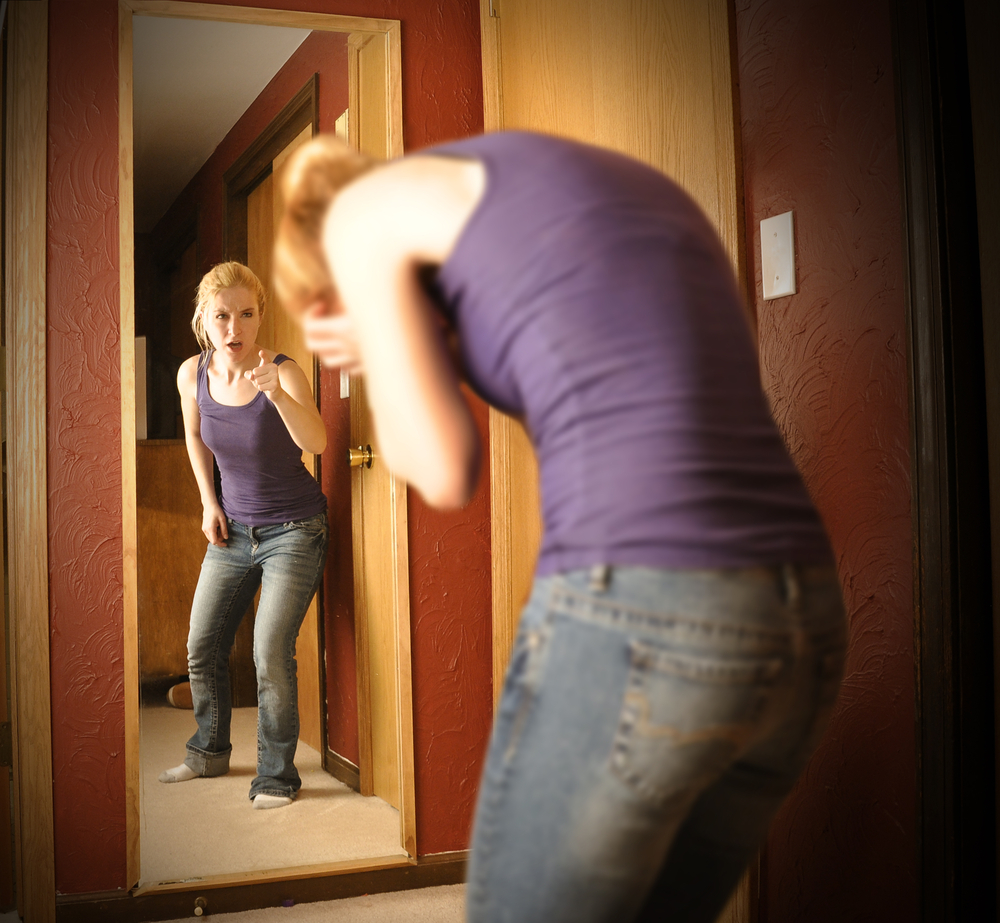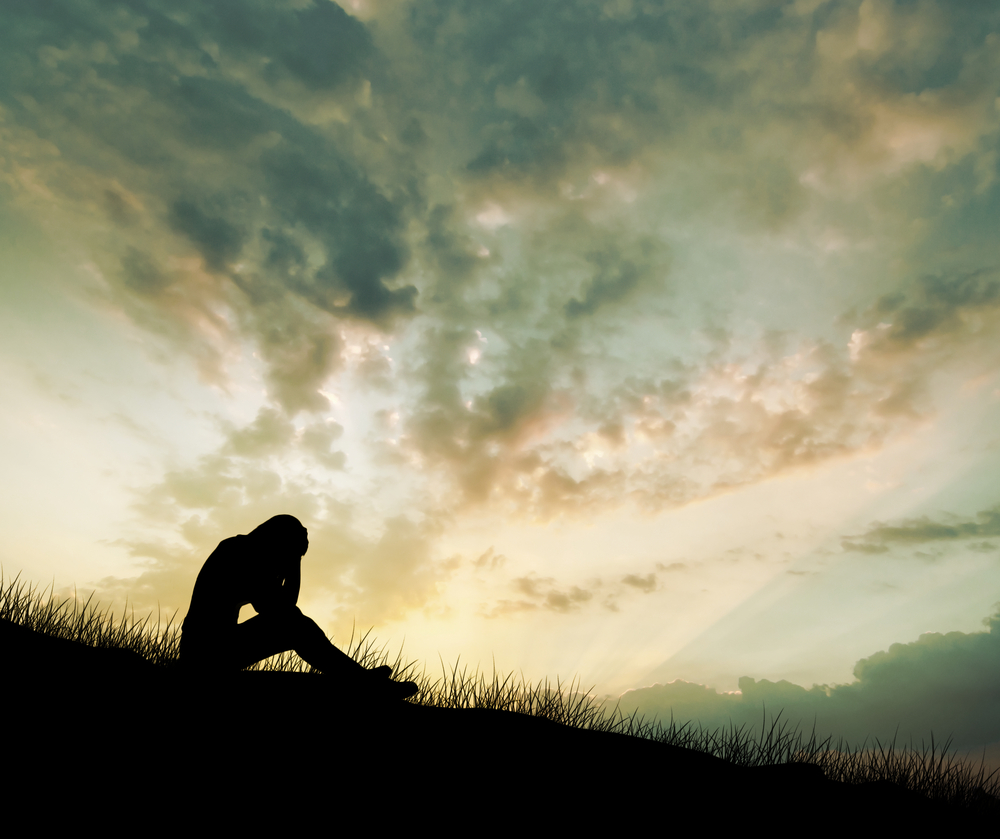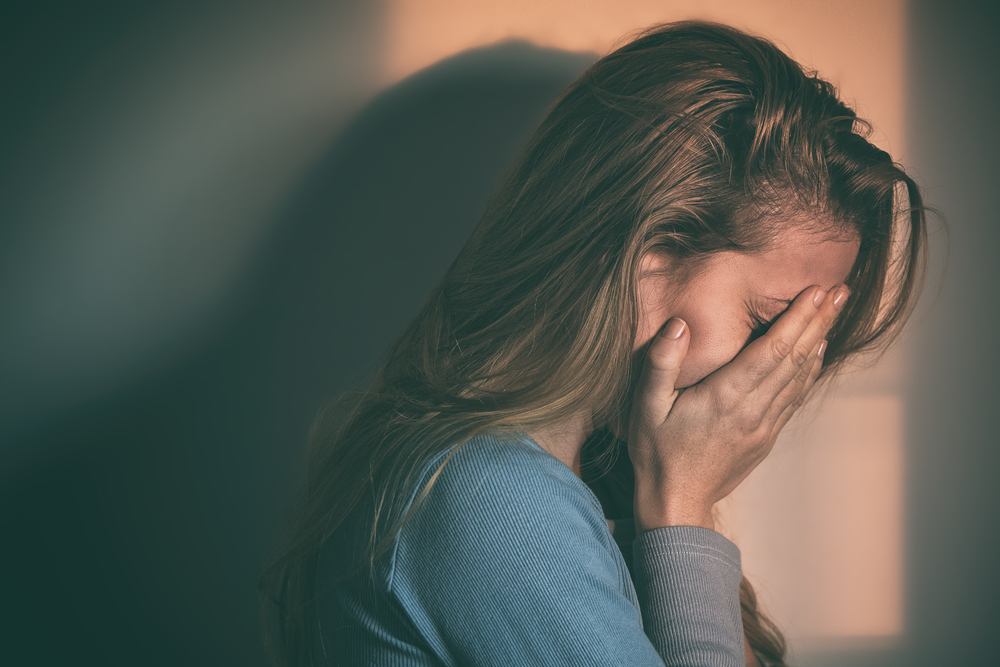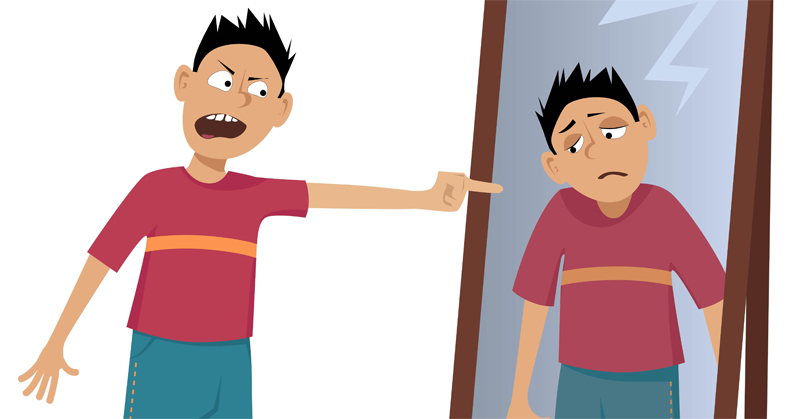It’s not easy to determine if you’re in an abusive relationship; even the most abusive of partners will have you doubting at times.
That goes double when the person abusing you is… well, you.
Today, let’s explore 7 signs that you’re in an abusive relationship with yourself – and what you can do about it.
#1. You’re Much Harsher On Yourself Than You Are On Your Friends

If you treated everyone the way you treat yourself, would you be well-liked? Or would everyone call you a huge bully?
Pay attention to every little interaction you have with yourself.
When you look in the mirror, do you say things you’d never dream of saying to even your rival? When you make a mistake, do you take 10 times longer to forgive yourself than you would a friend?
You’re no less human than anyone else on this planet. Treat yourself in a humane, kind way – just like you treat all the other people you care about.
#2 – “I’ll Love Myself When…”
True love is unconditional. Any relationship lasting in true, unconditional love is an abusive one.
Think about it. You wouldn’t feel secure in a relationship where your partner said, “I’ll love you fully when you get that promotion,” would you? No, you’d probably refer to that person as emotionally abusive.
It’s no less abusive when you say things like that to yourself. Your self-love should not come with any ‘buts.’ You should love yourself with or without a job, fancy house and nice car.
#3 – You Isolate Yourself

You might even tell yourself you’re doing your loved ones a favor by staying away from them. But really, you’re just isolating yourself from any positivity that might change your mind and counter negative thoughts. It’s exactly what abusers do.
If you feel yourself withdrawing, fight against that urge and make use of your social circle. The self-hating part of your mind will shrink in terror.
#4 – You Threaten To Harm Yourself
Just as an abuser might threaten to harm his or her partner, self-abusers threaten to maim or even kill themselves.
At the root of this is a lack of regard for one’s life and well-being. As with any sort of abuse, it could be caused by a number of things – mental illness, previous trauma, the list goes on.
Whatever the cause, serious alarm bells should be going off in your head if you frequently experience the desire to self-harm.
#5 – You Blame Yourself For Everything

In any abusive relationship, problems are rarely put into perspective. All the blame rests on one person. In an abusive relationship with yourself, that person is you.
Do you blame yourself for everything that goes wrong under the sun? Do you take it personally when a project at work flops or someone you know gets hurt?
“I should’ve been there.”
“I could’ve done something.”
Look, you can’t control everything. The outcome of the world around you is the sum of everyone’s actions. As long as you’ve done your part with the best of intentions, go easy on yourself.
How To Get Out Of An Abusive Relationship With Yourself
Unlike any other relationship, you can’t run away from the one you have with yourself. You can’t take out a restraining order or go to the police and have the perpetrator locked up.
No, you’ve gotta fix the relationship. And that’s how we grow. That’s the way we learn how to act in other relationships.
Throughout the post above, I’ve mentioned a few tips for repairing an abusive relationship with yourself. To summarize:
- Speak kindly to yourself – the way you’d speak to your best friend.
- Learn to love yourself unconditionally, regardless of what you have or don’t have.
- Let yourself seek help and support when you need it. Don’t isolate yourself.
- Take all forms of self-harm seriously. Your body does not deserve to be mistreated by anyone – including yourself.
- Keep things in perspective. You can only control so much in life.
Are you in an abusive relationship with yourself? What are your plans for change? Share your thoughts with us in the comments below!
Sources:
New Hope For Women
HelpGuide.org
Live Bold And Bloom
Huffington Post
Psych Central


